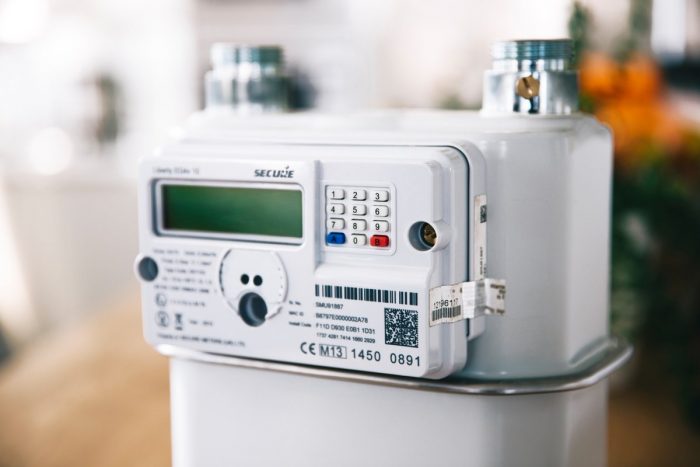You’ve likely been offered a smart meter by your energy supplier, which is why you have probably researched the device and ended up here.
In the past few years, several utility companies have started installing wireless smart meters and replacing regular analog ones. This is because they can provide more detailed information about energy usage in real time, and apparently, they come with many benefits. Well, the other side is much darker than that.
So if you’re trying to learn what does a smart meter look like and whether you should get one, you don’t have to search anymore since we will give you an answer to all your questions in this article.

Smart Meters Explained
What is a smart meter exactly?
A smart meter is a device your electricity supplier uses to measure energy usage. Smart meters are different from traditional ones since they can send the readings straight to their system.
These devices are part of the national upgrade and are used by all energy suppliers. Besides tracking your power usage, they may allow them to remotely turn the electricity supply on and off, measure the power quality of your home, and notify the distributor of power cuts.
The smart meters can be set to send readings every hour, once a day, or every month. Most of the time, the providers set them to receive readings once a month for more accurate statements.
What does a smart meter look like?
Smart meters come in various shapes and sizes, and the overall design depends on the supplier. Usually, they have only a display if they have a touch screen functionality or a display and button.
The Real Truth About the Smart Meters
While we were doing our research on what does a smart meter look like and all its potential disadvantages, we have come up with quite a few of them, but we are going to specify some of the most common that gave us a second thought about whether smart meters are a good idea.
Smart meters aren’t that “smart”
Once installed, most smart meters can only communicate and send reports to the supplier that has installed them. So, if you switch the supplier, they may lose their functionality and get back to standard mode.
The smart meters aren’t as “smart” as they seem. They cannot turn off lights or appliances to control their energy use. So, the responsibility for your energy usage falls back on you.
Depending on their type, if it is the first generation SMETS 1 instead of SMETS 2, it most likely loses its functionality.
Smart meters may not help you save money
One of the most common misconceptions about smart meters is that they allow customers to see their energy data consumption in real-time and encourage them to reduce their energy use. The thought is that, according to the studies, only a small number of consumers use the in-home displays after their novelty wears off.
Smart meters might cause anxiety and stress to more consumers
The simple fact that you are constantly being aware of how much you are spending may take a toll on consumers’ mental health, particularly older people with fixed incomes. Seeing the numbers ticking up may cause severe anxiety and panic attacks, making them turn off the lights and heating to save money.
Related: Smart Meter Dangers
Smart meters can’t save the environment
Another common myth about smart meters is that they can save the environment; however, that’s not how it goes in practice. For this to be true, every household needs to be glued to their in-home display to track the energy and ensure they save as much usage as possible.
With so many home appliances we use daily, like fridges, stoves, and boilers, there is not much hope that we may positively impact the environment with these devices.
A team of experts that researched the smart meter installation found striking increases in toxic inflammatory markers in patients’ blood samples. Even though these studies need further detailed research, there might be broader risks at a cellular level.
The famous biochemist and professional Martin Pall, who has won 8 international awards, stated: “Smart meters should be abolished because of the high-intensity pulses that emit radiation. From the multiple nanosecond studies, these pulses can be very damaging even long after being activated and can cause massive cellular damage.”
Read More: How to Block Smart Meter Radiation
Smart meters might spy on you
Smart meters require your personally identifiable information so your supplier can monitor your electricity usage. Some devices aren’t created with a security system and aren’t encrypted when sent to the supplier. This might risk exposing your information to a third party.
With utility knowing all the details about your home, they might quickly figure out when you are home and when you are not. Specific devices may be used to pick up the smart meter transition and decide which homes are available to be broken into.
Conclusion
So far, you are probably very well aware of what does a smart meter look like and all its potential associated problems. Since they are an immature technology, you might be exposed to more of a risk than to the total benefits.
Since the LED lights create a wave pattern that increases the pulse rate, you might have a huge bill even if you don’t use a lot of electricity. This is not worth all the blows and whistles of their smart work.
Also, not to mention that the EMF traditional smart levels may produce dangerously high levels throughout the day. This may disrupt the biological functions of the human body to the point of causing diseases and debilitating symptoms.
Their cyber security is controversial, with a high probability that hackers may disrupt the electricity system. So overall, getting a smart meter may not be a good option in any aspect of their performance and we do not recommend it.
